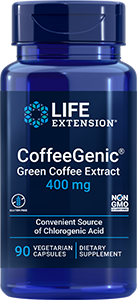Calcium supplementation linked to reduced mortality risk over a decade among women
Tuesday, May 28, 2013. In an article scheduled for publication in the July, 2013 issue of the Journal of Clinical Endocrinology and Metabolism, Canadian researchers report a reduction in the risk of dying over a ten year average period among women who used calcium supplements.
The current investigation utilized data from 6,287 women and 2,746 men who participated in the Canadian Multicentre Osteoporosis Study, which enrolled 9,423 men and women aged 25 and older from 1995 to 1997. Questionnaires administered upon enrollment provided information concerning intake of calcium and vitamin D from food and supplements.
One thousand one hundred-sixty deaths occurred over follow-up, which ended in 2007. Each 500 mg increase in total calcium intake was associated with a 5% reduction in the risk of dying from any cause during the follow-up period among women, but not men. Similarly, women who reported using calcium supplements had a 22% lower risk of dying than those who didn't use them. For women who used calcium supplements alone, the risk of premature mortality was 21% lower and for those who combined calcium and vitamin D, the risk was 23% lower in comparison with those who used neither supplements.
"Our study found daily use of calcium supplements was associated with a lower risk of death among women," lead author David Goltzman, MD of McGill University stated. "Higher amounts of calcium were potentially linked to longer life spans in women, regardless of the source of the calcium."
In their discussion of possible mechanisms to explain the finding, Dr Goltzman and his associates remarked that calcium supplementation has been linked with improved lipids and a reduction in the risk of hypertension. Additionally, calcium supplements protect against secondary hyperparathyroidism and high serum parathyroid hormone, which can increase bone loss and blood vessel calcification, thereby elevating the risk of premature mortality. By binding fatty acids in the colon and inhibiting epithelial proliferation, calcium may also help prevent colorectal polyps, some of which may become cancerous. In light of recently publicized cautions concerning a possible lack of benefit or increased adverse risks in association with calcium supplementation, the authors write, "If calcium and vitamin D supplementation are indeed required to ensure adequate intake levels for bone health then our study provides assurance that, in community-dwelling individuals, there is no increased mortality associated with ingestion of modest amounts of supplemental calcium and vitamin D and that there may in fact be a mortality benefit."
"Our recommendation would be to assess dietary intake to meet calcium and vitamin D requirements for bone health and to consider supplementation as necessary to meet the requirements," they conclude.
|
 |
 |
|
The results of two double-blinded, placebo-controlled trials described online on December 14, 2011 in the American Journal of Clinical Nutrition conclude a beneficial effect for calcium and vitamin D in reducing visceral adipose tissue—fat that accumulates in the abdomen which is associated with several metabolic disorders.
A team from Massachusetts General Hospital randomized 88 overweight or obese men and women to receive a glass of orange juice fortified with 350 milligrams calcium and 100 international units vitamin D3, or nonfortified orange juice three times daily for 16 weeks. A separate trial of 83 men and women evaluated the effects of calcium and vitamin D-fortified "lite" orange juice, which has fewer calories than regular orange juice. Physical examinations conducted at the beginning of the study and at four week intervals ascertained weight and waist circumference. Computed tomography (CT) examination of the abdomen assessed visceral and subcutaneous fat tissue before and after treatment.
While changes in body weight, body mass index and waist circumference did not differ significantly between those who received fortified and nonfortified juice in either trial, the reduction in visceral adipose tissue was significantly greater among those that received fortified beverages. For those who received regular orange juice, the reduction averaged 12.7 cm2 in comparison with a loss of 1.3 cm2 in the control group, and in the lite orange juice group, the addition of calcium and vitamin D resulted in a 13.1 cm2 reduction in visceral adipose tissue compared to 6.4 cm2 in the control group.
"The data underscore the possible role of these two nutrients in fat metabolism and support a potential role of calcium and vitamin D in the preferential and beneficial reduction of visceral abdominal tissue," the authors conclude.
|

As we see it: Dangerous misconceptions, by William Faloon
Heart disease kills more women than men, yet most females remain unaware of blood markers that assess their risk of cancer and vascular disease.
Unexpected benefits of olive leaf extract, by Julian Everson
Scientists have isolated a unique molecule in olive oil that provides its cardioprotective benefits.
The forgotten longevity benefits of taurine, by Ian MacLeavy
High dietary intake of taurine is one of the factors responsible for the remarkable longevity of Okinawans.
Anti-inflammatory properties of tart cherry, by Michael Downey
In addition to reducing daily aches and pains, tart cherries help muscle recover faster after exercise.
Conference report: World stem cell summit 2012, by Ben Best
Stem cell therapy is on the verge of transforming medicine from just treating symptoms to restoring youthful cellular health.
Unique peptide repairs aging skin, by Gary Goldfaden MD and Robert Goldfaden
Researchers have discovered a restorative peptide called acetyl tetrapeptide-2 that triggers reparative processes and cellular reactions usually seen in younger skin.
In the News, by D. Dye, A. Pryce, ND, and M. Richmond
If you have any questions about this e-issue please send us an e-mail or call toll-free 1-866-638-8083 anytime. |
|

|

|
|
Vitamin C efficacy can be limited because it is quickly utilized and excreted by the body. A novel formula sets a new standard for rapid absorption, enhancing the time that vitamin C is delivered for cellular protection.
FAST-C® with Dihydroquercetin is the only vitamin C product to incorporate:
- A proprietary blend of alkalizing minerals that yields an almost completely acid-neutralized (which is better than "buffered") vitamin C for sensitive stomachs
- Piperine (Bioperine®), a multipatented, black pepper alkaloid that significantly accelerates vitamin C absorption, shortening the time to peak plasma concentration
- Dihydroquercetin, a grape leaf derived flavonoid that donates electrons back to vitamin C molecules that have spent their electrons neutralizing free radicals—regenerating vitamin C to work again
|
|

|
|
Studies show even in people with normal fasting glucose, gaining control of after-meal surges may provide additional support for cardiovascular and metabolic health. To address this widespread problem, a natural compound is now available called CoffeeGenic® Green Coffee Extract. This next-generation glucose control compound was shown to induce a remarkable 32% drop in after-meal blood sugar.
At the core of CoffeeGenic® Green Coffee Extract's power to favorably modulate after-meal glucose levels is chlorogenic acid, a polyphenol found in the green coffee bean. Chlorogenic acid has been shown to inhibit excess activity of glucose-6-phosphatase. The glucose-6-phosphatase enzyme triggers glucose formation from non-carbohydrate substrates and glycogen release from the liver, both of which can create excess glucose in the blood. |
|
|













